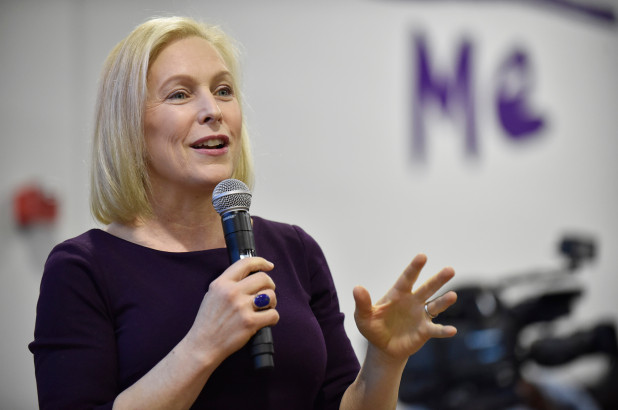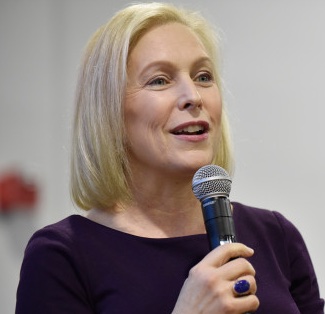President Gillibrand Got Her Start At Yale
nypost.com
Inside the training program that helped launch Gillibrand’s political career
By Frank Ryan | Feb. 23rd, 2019

In 2005 an ambitious young lawyer attended a five-day intensive training program at Yale University. The short but grueling schedule at the Women’s Campaign School was packed with workshops on polling, fundraising, public speaking, handling the press — and makeup.
Eighteen months later, Sen. Kirsten Gillibrand (D-NY) was serving in the House of Representatives, her first step in a career that would take her to the US Senate — and now aims at the White House.
“We teach technical skills, everything you need to learn and know and run a successful campaign,” the school’s executive director Patricia Russo told The Post.
“It’s not public policy. It’s hands-on, grass-roots organizing. Our program actually mimics the energy of a political campaign.”
Even though Gillibrand had served as a Senate intern and had grown up in a politically connected family, she had never learned about the nuts-and-bolts of a campaign. She said in 2008 that the program “really helped me decide to run.”
“They really covered the how-to aspect,” she said. “You have to be well-organized. You can’t make it up as you go along. You have to treat it like a business.”
In a political season that has more women vying for a major-party presidential nomination than ever before, those skills have served her well. She joins three other female senators — Elizabeth Warren (D-Mass.), Kamala Harris (D-Calif.) and Amy Klobuchar (D-Minn.) — in the race for the world’s top job.
“The Women’s Campaign School at Yale has one mission,” its Web site reads. “Increase the number and influence of women in elected and appointed office in the United States and around the globe.”
The big picture goal is to move federal, state and local governments to focus on women’s issues, which can get short shrift without female representation.
Since its founding by author Andrée Aelion Brooks in 1993, the school has turned out a small army of aides, operatives, campaign managers and candidates, contributing to the surging growth of women serving in elected office — including 102 currently in the House of Representatives and 25 in the Senate.
“It covered the bases and gave us something to hold on to,” said Jo Brill, a graduate of the class of 1999. “There was frank advice and role-playing. It was just us ladies, so there was lots of female solidarity.
“They were telling me I should smooth out my skin tone with foundation to appear better on television,” remembered Brill.
A 2013 graduate recalled deep-dive analyses of competitive congressional races from both liberal and conservative perspectives — as well as a day devoted to learning how to shake hands and walk into a room.
“You imagine yourself with like a ball of energy around your chest area. You just walk into a room with that energy,” the grad said, noting that a proper handshake required leaning in with your purlicue — the skin between the thumb and index finger — raised upwards.
There were also tips for fundraising. “You don’t have to be shy about asking for a donation,” the 2013 grad said.
Former Rep. Gabrielle Giffords (D-Ariz.) is a fellow graduate.
“There’s still a bias in our country [against] women running for office,” Giffords said in 2008, eight years after she attended. The program taught her how to “translate my experience on nonprofit boards and in business into political experience.”
Despite turning out so many Democratic office holders, the program maintains a passionate devotion to bipartisanship, even in the age of Trump.
“We have a code of conduct,” Russo said. “We really want you to treat each other respectfully and treat each other the way you like to be treated.”
GOP pollster Kristen Soltis Anderson recalls a “fantastic experience” in 2008.
“It was a couple of days where it was just women. I believe the instructors were all or mostly women as well,” she said. “You also met women from around the world.
There were some women from Saint Kitts in our program.”
The $1,800 program has become increasingly competitive. In 2018 more than 600 women applied for roughly 80 spots.
“We’re looking for women who have substantial political experience and have worked in campaigns,” Russo said. “By the time they leave … they are ready to run.”

